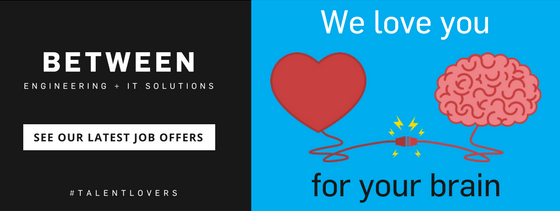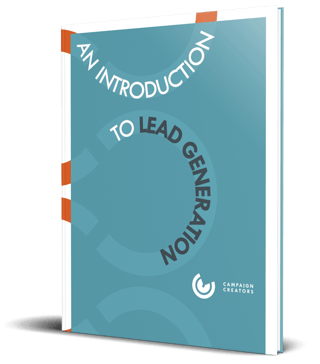Maybe you have never heard this term but, once you read this post you’ll understand its importance and relevance in talent attraction and retention processes.
What is the culture fit?
It is a recruitment tendency, and its aim is that both the company and the candidate share the same values, ideas and principles so that the candidate fits in to the maximum and as soon as possible in the corporate culture. It is all about looking for the person’s compatibility with the “style” of a given organization.
And, why is it important that values, ideas and principles are shared?
Values indicate behaviours and attitudes. In conclusion, they determine how we are going to feel and so, they indicate the “quality of our emotions”. Imagine how a person who likes working on his/her own, who finds hard to contribute with ideas, who finds difficult making fast and agile decisions and who values more results than the relationship with people will feel if hired by a company whose values are teamwork, proactivity and being person-oriented.
If our values are aligned with those of the organization, we will feel better. In conclusion, the “culture fit” implies “connecting recruitment with emotions” in order to guarantee an emotional connection. Out of the 24 hours a day has, we spend a third of it at work, and if our job causes us negative emotions, these will have a negative effect not only on our working everyday life, but also on our personal-family life, or even on our time off, since most of the times insomnia is related to discomfort at work.

Benefits for the cmopany
Recruiting according to the experience, knowledge and skills guarantees technical competence, which is important. The expertise, even though guaranteeing that a given person will know how to do his/her job, doesn’t guarantee that that person will fit in the company, in his/her work team, or with his/her boss, etc. Factors which condition an effective performance and a personal well-being to a great extent. We have all heard of cases of excellent “technicians” who have had to leave their company “for not fitting in the system”, or, on the contrary, of people who have left a company because they did not fit in but, when starting at another organization, they developed a brilliant professional career.
Technical competence can be completed with training, but the incompatibility of values, ideas and principles is hardly transformable with training. You can ask yourself the following question: do you think that your values, ideas or principles at a political level could be changed with training?
A selection process based on the “culture fit” defines the following “circle of excellence”: greater and faster adaptation of the person to the company, which conditions positively the working climate, and it has been proved that in a positive climate, people work more and better, so both productivity and commitment are guaranteed. All these factors guarantee talent retention, which finally implies cost savings caused by employee rotation.
If a person feels good at a company, going to work every day will be a source of satisfaction and happiness and, who leaves a place when feeling happy in it?
For achieving this “circle of excellence” it is important that selection professionals follow these guidelines when it comes to conducting selection processes.
1. Get to know and define the company’s values in depth
2.Explain to candidates the culture of the company in terms of values and principles
Many professionals leave out this part thinking that they provide too much information, but it’s exactly the opposite. It is valuable information that needs to be given to candidates to guarantee both the success of the selection process and the candidate’s adaptation into the organization.
2. Dedicate a part of the interview to the following questions:
- What do you like about our company?
- What makes you want to work in it?
- Which features of this company would you outline?
- What do you know about our philosophy, practices, etc.?
- How do you think you would fit in it?
- How would you describe your ideal company?
Apart from analysing the candidate’s values, attitudes, personal characteristics, etc.
3. Identify during the interview the following aspects of the candidate, in terms of observable behaviours.
At this point it is very important to make competency-based questions.It is important to point out that basing employee selection on the “culture fit” is essential for guaranteeing talent attraction and retention at all company levels, but it’s even more important in higher hierarchical levels, since managers “set” the values, ideas and principles both of the organization and of the people they are in charge of. How many times have we seen a company with excellent values and principles which in the end are not followed in the company’s day-to-day by these managers, together with the subsequent discouragement of their teams due to the inconsistency between “what must be and what it actually is”. Remember that generally: “people don’t leave companies, they leave managers”.
“Emotionally intelligent companies”, keep in mind that the emotions they inspire to their employees will define both their well-being, and the success of the organization.

“You might forget what they said or what they did, but you will never forget how they made you feel”.
Anonymous
Benefits for the candidate
In the case that candidate is selected by following the Culture fit, the “circle of excellence” will follow this itinerary: if the person connects emotionally with the company through its values, principles and practices, his/her motivation will be greater. This greater motivation implies satisfaction, and a satisfied person is a happy person with personal and emotional well-being.
As a candidate, it is important that you try to look into, analyse and try to find information about the culture, values and principles of the company you are looking forward to joining. Before applying to a job, as well as when you’re in the interviewing process, you should ask about the culture, values, practices and principles of the company, and it should be one of the main topics during the interview. You can use the questions in the previous section. Often the wage, the position itself or the company’s prestige may dazzle you, but you shouldn’t omit the following question: how will I feel in this company?
Recent studies about this selection practice have concluded that more than the 80% of the employees around the world consider that being “Culture Fit” is one of the imperative variables for choosing a company over another one as the future place to work.
As a final reflection, I invite you to think about this: how do you choose your partner, your friends or your business partners? And, what makes a couple, friend or business partner relationship break?
And for you, is Culture Fit important?



